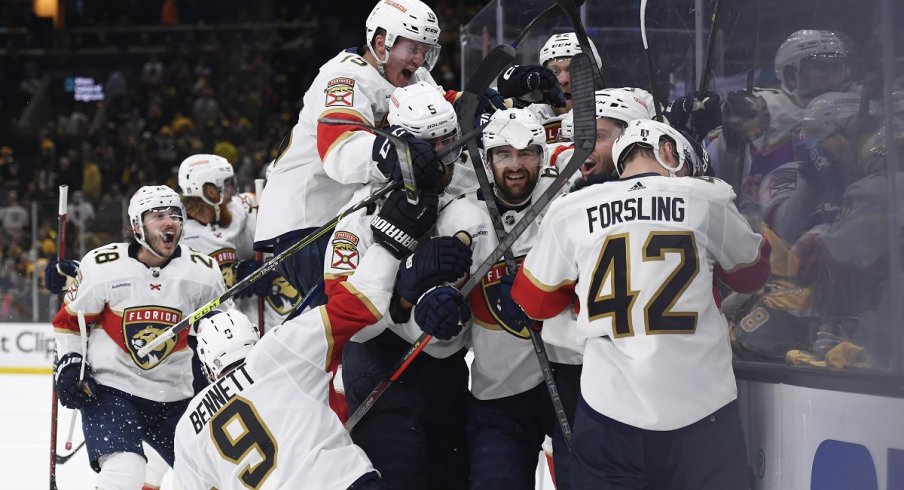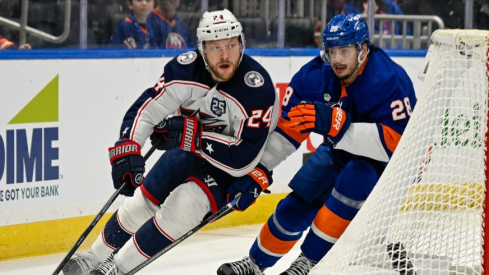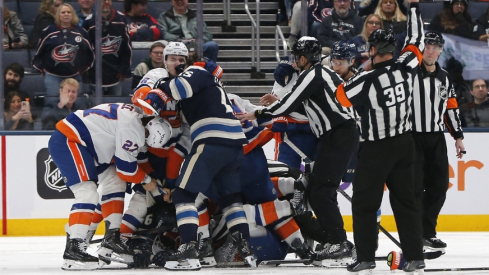The first round of the Stanley Cup Playoffs is nearly in the books, and it's provided another chapter in the book of parity.
The President's Trophy-winning Boston Bruins, arguably the best NHL team ever assembled, lost in Game 7 to the flawed Florida Panthers, who eeked into the playoffs with 92 points. The defending champion Colorado Avalanche were similarly ousted by the newcomers on the block, the Seattle Kraken, in a series that never really felt like an upset. And while the Toronto Maple Leafs were favored over the Tampa Bay Lightning, it is still notable that a team that has won two and been to three of the past three Stanley Cup Finals won't compete in May, let alone June.
Remaining teams and their last Cup win:
— (@Arda) May 1, 2023
Canes: 2006
NJD: 2003 / NYR: 1994
Stars: 1999
Oilers: 1990
Leafs: 1967
Panthers: none
VGK: none
Kraken: none
The salary cap was implemented, in part, to level the playing field. And level it has. The difference between teams, even 1-32, let alone 1-16, is quite a bit smaller than in prior iterations of the NHL. The last two weeks were just the latest example.
The question is... is that a good thing? In a league where anyone can win, anyone can lose. What is the purpose of the regular season if the evidence suggests being the 16th-best team is basically just as valuable as being the best team? Is home-ice advantage even an advantage?
From the league's standpoint, it's probably a mixed bag. On the one hand, having a Goliath/villain figure probably helps ratings and general intrigue. On the other, it captivates fanbases that, according to regular season results, probably shouldn't be contenders but are anyways.
From a fan's standpoint, I think it goes both ways, too. Anecdotally speaking, I didn't care at all for the March Madness tournament this year. Is that because college basketball is an insufferable product? Probably. But also, it's hard for a casual fan to justify the time to watch homogeneously average teams compete. The old adage that you want Cinderella upsets in the first round but 'Blue Bloods' in the later rounds is probably true for me. On the other hand, it can be interesting to watch a game where anything can happen. The same holds true in the Stanley Cup Playoffs.
At this point in the Blue Jackets' lifecycle, this is welcome news. The Blue Jackets luckily don't need to be a top-five or even top-10 team next season. All they need to do is squeak into the playoffs, and as they've proved in the past, anything can happen.
If there is a silver lining to my pessimistic view on the state of the league, the Stanley Cup Playoffs do encourage a sustained winner. The Bruins, Lightning, and Avalanche all lost in Game 7's of the first round, but it won't be a surprise to see all of them back next season. Building a sustainably competitive team gives multiple chances.
And in a coin-flip league, volume, and not necessarily just regular season, is what really matters.


